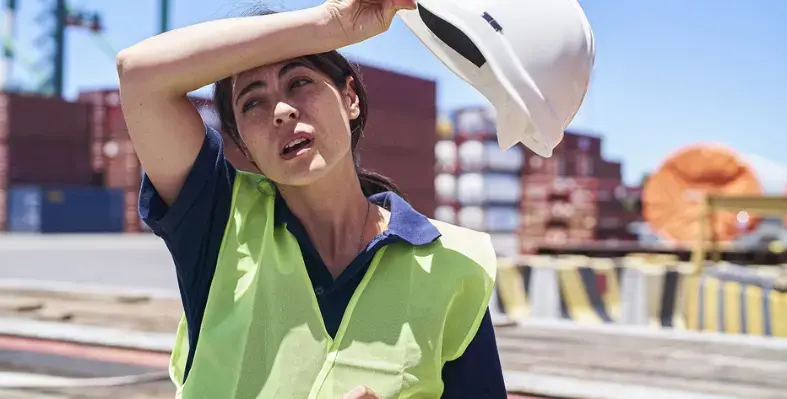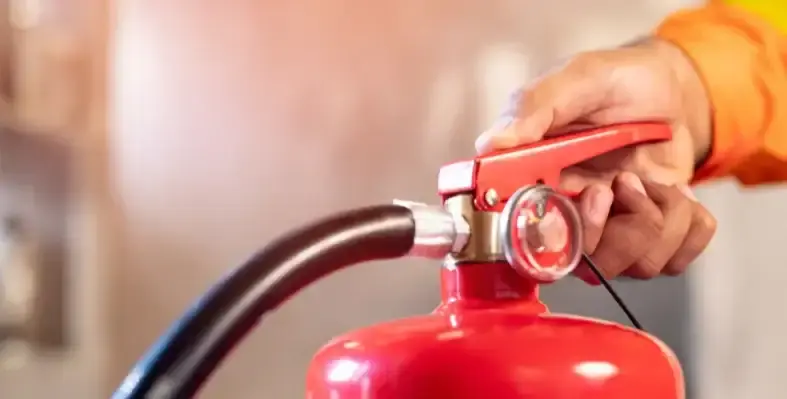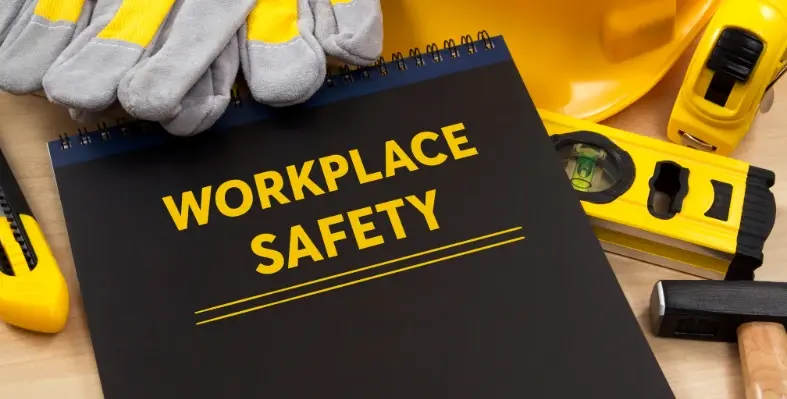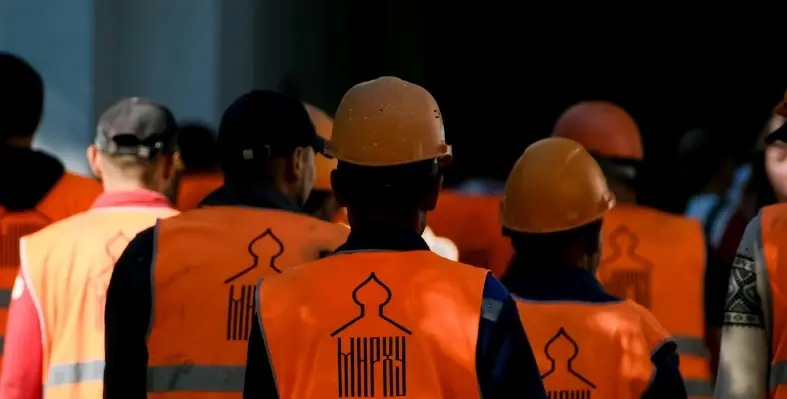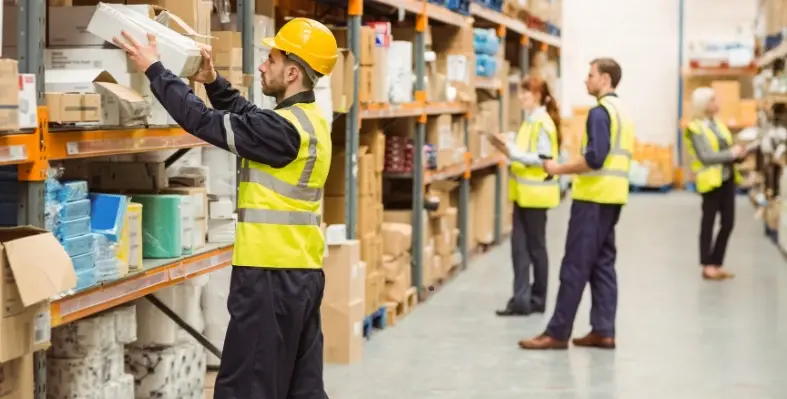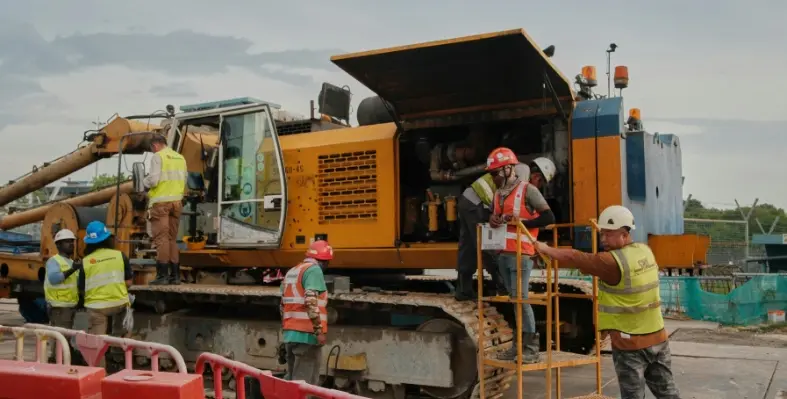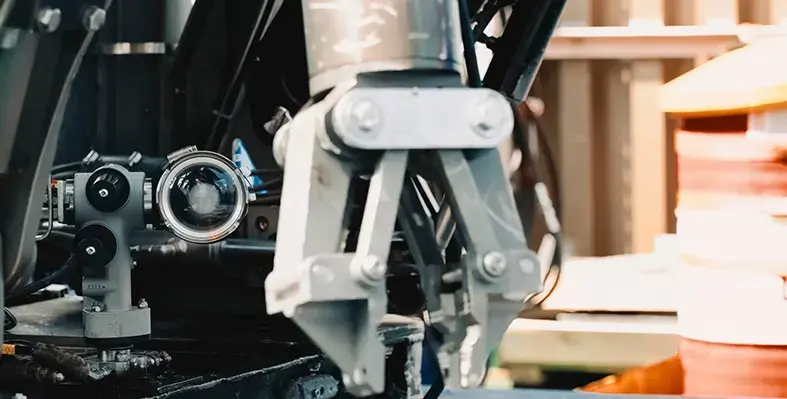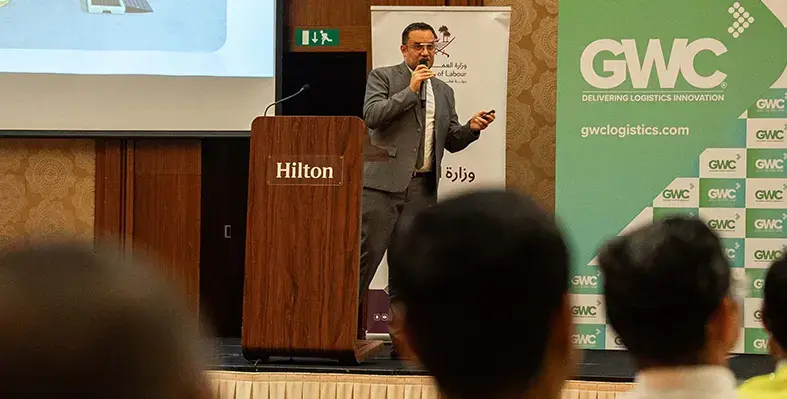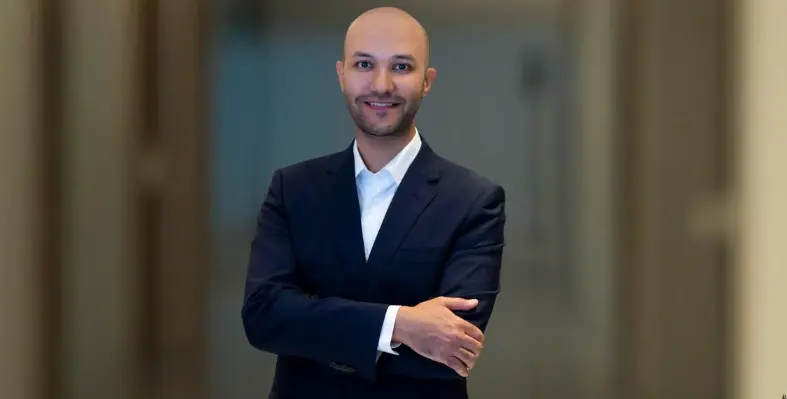Industrial Insights
Industrial Insights
- Details
- Sania Aziz
- Industrial Insights
- Date: 21 October, 2025
- Year: 2025
In our increasingly complex workplaces around the globe, the integration of artificial intelligence (AI) is proving to be a valuable ally in enhancing occupational health and safety (OHS).
Here are five ways AI is helping to protect workers and promote safer working environments:
Predictive analytics to anticipate hazards
Rather than simply reacting to accidents after they happen, AI systems can analyse vast datasets (such as incident logs, maintenance records or environmental readings) to identify patterns and predict potential risks. Research indicates that AI-driven technologies offer “predictive insights” which enable organisations to move from reactive to proactive safety strategies. For instance, in high-risk sectors such as construction or manufacturing, AI models may highlight equipment likely to fail or tasks that are statistically more accident-prone.
Real-time monitoring & computer vision for unsafe behaviour
AI-powered computer vision systems, often combined with wearable sensors or CCTV, can monitor workspaces for unsafe acts or conditions. As an example, some systems detect when a worker enters a restricted zone without appropriate personal protective equipment (PPE), or when machinery guards are missing. This enables rapid alerts so corrective action can be taken immediately, thereby reducing the window for harm. It also supports continuous, rather than intermittent, oversight of safety compliance.
Smart wearables and environmental sensors
AI is increasingly embedded in wearable devices and ambient sensors to monitor worker health and environmental conditions in real time. These might include monitoring of air quality (toxins, dust), temperature, humidity, or even biometrics of the worker (such as fatigue indicators). A recent review noted that “smart wearable devices … provide real-time risk detection or environmental sensors that track air quality”. In doing so, organisations can protect workers from exposure to harmful agents, heat stress, or other ergonomic and environmental hazards.
Automation and robotics to take humans out of harm’s way
One of the most direct applications of AI for OHS is the deployment of robots or automated systems to handle the “dirty, dangerous and demeaning” tasks thereby reducing human exposure to hazardous environments. For example, robots might handle heavy materials, work in extreme temperatures, or enter environments with toxic exposures. By combining robotics with AI control, organisations can reduce worker injuries while improving operational efficiency.
Enhanced training, risk communication and decision support
AI is also aiding the human side of safety. AI-driven systems can analyse inspection reports, maintenance logs and safety-audit data to flag systemic issues or emergent risks through natural language processing (NLP). Moreover, virtual reality (VR) or augmented reality (AR) training modules powered by AI can sensitise workers to hazards in immersive ways, improving their hazard recognition and safety behaviour. Effective risk communication, backed by AI analytics, helps safety professionals prioritise interventions and resources more efficiently.
Globally, AI is reshaping the landscape of occupational health and safety by making it more proactive, data-driven, and responsive. As noted by the International Labour Organization (ILO), it is not simply about new tools but about transforming how risks are identified, prevented and managed across industries.
That said, the empirical research base remains relatively modest and further study is needed to fully realise and validate these benefits. Organisations adopting AI in OHS must attend carefully to issues such as data quality, worker privacy, algorithmic bias, and the safe integration of automation into human workflows.
- Details
- Sania Aziz
- Industrial Insights
- Date: 20 October, 2025
- Year: 2025
The Saskatchewan government has launched a comprehensive review of its occupational health and safety regulations — the first major update since 2006 — to ensure workplace safety standards align with today’s evolving work environments.
Deputy Premier and Labour Relations and Workplace Safety Minister Jim Reiter emphasised that the review will help keep regulations relevant and reflective of modern needs. “We look forward to hearing insights from organisations and individuals,” he said.
The review responds to nearly two decades of workplace change, driven by technological advancements and shifting work practices. It also follows recent amendments to the occupational health and safety provisions of the Saskatchewan Employment Act, prompting regulatory updates for consistency.
The review will unfold in three phases, beginning with sections one to five of the Occupational Health and Safety Regulations, 2020. Stakeholders have until 30 November to submit feedback on these sections, which address notification requirements, youth employment, occupational health and safety programmes, accident investigations, and first aid provisions.
Among the key topics under consideration is the threshold for reporting serious injuries. Current regulations require a hospital stay of at least 72 hours for an injury to qualify as serious — a standard that may no longer reflect modern healthcare practices. Other areas of focus include youth employment protections, as workers under 25 accounted for 15% of accepted injury claims in 2024, with 2,689 cases reported to the Workers’ Compensation Board.
Additionally, the review will explore harmonising first aid requirements with other Canadian jurisdictions under the Canada Free Trade Agreement, updating harassment and violence provisions, and reassessing occupational health committee requirements for workplaces with 10 or more employees.
- Details
- Sania Aziz
- Industrial Insights
- Date: 17 October, 2025
- Year: 2025
As part of its participation at GITEX Global 2025, the Ministry of Human Resources and Emiratisation (MoHRE) unveiled its latest digital initiative, the Smart Safety Tracker, designed to enhance monitoring and enforcement of occupational health and safety standards in workplaces.
The project demonstrates the Ministry’s commitment to generative artificial intelligence (GenAI) solutions, aiming to modernise field inspection tools and advance intelligent regulatory oversight.
Her Excellency Shayma Yousef Alawadhi, Acting Undersecretary of Labour Market Development & Regulation and Assistant Undersecretary for Communications & International Relations at MoHRE, said, “The project embodies the Ministry’s drive to adopt cutting-edge AI technologies that enhance on-field supervision and streamline the monitoring and enforcement of occupational health and safety standards, in line with the UAE Government’s ambitious vision to lead in public service excellence and innovation through digital transformation and artificial intelligence.”
She added, “The project supports MoHRE’s strategic priorities of promoting worker wellbeing and happiness by fostering safe and healthy work environments, and reflects the Ministry’s broader goal of building a sustainable and human-centred labour market, where safety and well-being remain top priorities. This initiative marks an important step towards making workplaces across the UAE safer and more sustainable.”
AI usage
The Smart Safety Tracker uses GenAI and advanced computer vision technologies to automatically analyse field images and data, identifying violations and potential risks such as missing protective equipment, unsafe work practices, or hazardous material accumulation.
Deep Learning algorithms trained on thousands of real-world scenarios allow the system to detect unsafe patterns in real time, while GenAI generates intelligent reports detailing the type, location, severity, and recommended corrective actions for each violation.
This approach reduces the effort required from field inspectors, elevating inspection efficiency and enabling data-driven decisions that focus on analysis rather than routine tasks.
- Details
- Sania Aziz
- Industrial Insights
- Date: 16 October, 2025
- Year: 2025
The Big 5 Global exhibition and conference, taking place in Dubai from 24-27 November 2025, will once again gather key stakeholders from across the built environment to address the industry’s most pressing challenges and innovations.
Among the central discussions at this year’s event are two highly anticipated panel sessions that will delve into critical aspects of fire, life safety, and building standards shaping the region’s construction and HVACR sectors.
Fire safety
One of the headline sessions, titled Fire and life safety in HVACR: New mandates and technological developments, will focus on the evolving regulatory landscape in the GCC, particularly the updates to fire and life safety codes in the UAE, Saudi Arabia, and Qatar. The discussion will emphasise HVAC-related systems, including smoke control, fire-rated ductwork, and automated testing protocols, areas that have seen significant advancements in both regulation and technology. The panel will also explore how updates to US standards could influence the regional HVAC industry, reflecting the growing alignment between international and GCC safety frameworks.
Experts are expected to highlight the latest innovations in HVAC-related fire and life safety technologies, addressing how automation, smart monitoring, and integrated control systems are reshaping compliance and risk management strategies. The session will also examine compliance challenges specific to the GCC, such as balancing cost efficiency with the stringent demands of fire safety enforcement, while showcasing global best practices and future outlooks that could redefine regional standards in the coming years.
Building safety
Another key session, Benchmarking building safety: The role of SDOs in shaping regional standards and global alignment, will bring together leading representatives from some of the world’s foremost standards development organisations (SDOs). Moderated by Mohamed Amer, Managing Director – MENA at the International Code Council (ICC), the panel will include Engr Fouad Yazbeck, Global Cooperation Representative – MENA at ASTM International; Hassan Abou Jawhar, Director for Europe and the Middle East Regions at the Air Movement and Control Association (AMCA); Nabil Shahin, Managing Director of the Air-Conditioning, Heating, and Refrigeration Institute (AHRI); and Dr George Borlase, Senior Vice President at UL Standards & Engagement.
The session will explore how international and regional SDOs are collaborating to harmonise standards, streamline compliance, and promote safer, more sustainable building practices across the Middle East. By benchmarking building safety and fostering dialogue among global and regional experts, the discussion aims to ensure that construction in the GCC aligns with international benchmarks while reflecting the region’s unique climatic and regulatory requirements.
- Details
- Sania Aziz
- Industrial Insights
- Date: 15 October, 2025
- Year: 2025
The National Council for Occupational Safety and Health (National COSH) has expressed deep sorrow and outrage following the catastrophic explosion on October 10 at the Accurate Energetic Systems plant in Bucksnort, Tennessee.
The blast killed 16 workers and completely destroyed the facility.
"This horrific tragedy is a stark reminder of what happens when worker safety takes a back seat to production and profit," said Jessica E. Martinez, executive director of National COSH. "Explosives manufacturing is inherently dangerous - yet every single one of these deaths was preventable if proper oversight, safety measures, and accountability were in place. No one should die for a paycheck."
Authorities confirmed that all 16 workers inside the building at the time of the explosion perished, leaving behind grieving families and coworkers, and depriving investigators of critical firsthand accounts of the conditions leading up to the disaster. While the cause remains under investigation, the nature of the facility's work and the scale of the destruction underscore the urgent need for stronger safety enforcement.
"Without survivors, we've lost not only lives but also voices - the very people who could have told us what was happening inside that plant," Martinez continued. "That silence demands a louder response from our government. OSHA and federal investigators must act swiftly, transparently, and independently to determine what went wrong and to hold those responsible accountable."
Demand for accountability
The Accurate Energetic Systems facility, covering 1,300 acres in rural Tennessee, manufactures and stores explosives for military and industrial use. It employed over 100 workers, many from surrounding small communities. While the company offers wages above the regional average, the explosion highlights the limited options available to workers in economically vulnerable areas and the dangers of placing profits above people.
"This is not an isolated event," said Martinez. "Across the country, we see too many employers in high-risk industries cutting corners while regulators lack the staffing, funding, and authority to prevent disasters. Workers, especially in rural and marginalised communities, are treated as expendable. That must end."
National COSH is urging federal and state officials to launch a fully independent investigation into the explosion, increase funding and staffing for OSHA and other safety agencies, strengthen whistleblower protections to allow workers to report hazards without fear of retaliation, and ensure full transparency and accountability for the causes of this deadly incident.
"Safety isn't optional - it's a right," said Martinez. "We stand with the families, the workers, and the Bucksnort community in demanding the truth, accountability, and real changes so tragedies like this never happen again."
- Details
- Sania Aziz
- Industrial Insights
- Date: 14 October, 2025
- Year: 2025
Construction workers’ health cash plan claims rose 6% over the past year, according to new figures from Westfield Health.
With the Construction Skills Network forecasting the need for an additional 250,000 workers by 2028, experts warn that untreated health issues could force experienced employees out of the sector amid an existing skills shortage.
The data highlights mounting pressure on the workforce, with therapies, dental, and optical services among the most frequently claimed.
Nearly two-thirds (62%) of manual workers report it has become harder to get health appointments, while one in three say they have no wellbeing support at work. Therapies, including physiotherapy, osteopathy, chiropractic, and acupuncture, accounted for around three in ten claims, rising 10% year on year, with claim values up almost 20%.
Official statistics
Dental claims increased 3% in volume and 8% in value, while optical claims rose 2% in volume and 7% in value. Together, dental and optical claims represented 59% of claims and 62% of total value, showing how much construction workers rely on employer-backed support for both routine healthcare and treatments linked to physical strain.
Official statistics underline the scale of the challenge. The Health and Safety Executive reports that more than half (52%) of work-related ill-health days in construction are caused by musculoskeletal conditions, while the Chartered Institute of Building’s 2025 report highlights persistent stress, anxiety, and depression. Both musculoskeletal and mental health issues are largely preventable with early intervention, yet continue to drive absence across the industry.
Mark Hamson, managing director of insurance at Westfield Health, said, “Construction firms have a duty of care to protect their people, but there is also a business reality. When workers cannot access timely support, productivity drops, absenteeism rises and retention suffers. Our data shows strong demand for everyday preventative services that reflect the pressures construction workers face. Investing in workforce health is essential if the industry wants to keep hold of its skilled people.”
Westfield Health says tailored health benefits help employees access support early, promoting wellbeing while boosting productivity and retention, crucial at a time when keeping skilled workers is more important than ever.
- Details
- Sania Aziz
- Industrial Insights
- Date: 10 October, 2025
- Year: 2025
Finland is facing the tangible impacts of climate change, with a record-breaking summer heatwave highlighting the urgent need for workplaces to adapt.
During July and August 2025, the country recorded 22 consecutive days with temperatures exceeding 30°C, the longest stretch of extreme heat ever measured in Finland.
A recent report by the Finnish Institute of Occupational Health warns that long heatwaves and other extreme weather events increasingly affect working conditions and employees’ ability to perform their jobs. Heat stress, high humidity, UV exposure, slippery surfaces, and other unusual weather conditions raise the risk of accidents, particularly for outdoor workers, though indoor environments are also affected.
“Workplaces are not yet sufficiently aware of how climate change affects the physical and psychological demands of work and the operational practices of different organisations. Small and medium-sized companies in particular are not sufficiently prepared,” said Arja Ala-Laurinaho, senior specialist at the institute.
Fighting climate change
Employers can mitigate risks by adjusting working hours, increasing breaks, cooling break rooms, and using digital monitoring of conditions.
The report also cautions that the green transition, while essential for sustainability, can introduce new occupational risks. Emerging technologies in hydrogen, biofuels, battery production, and circular economy materials may expose workers to hazards that are not yet fully understood. Focusing solely on emission reductions could lead to safety being overlooked.
“Proactive safety work improves employee protections and also helps make the transition more acceptable at workplaces,” said Anna-Maria Teperi, research professor at the institute.
The report outlines five key recommendations for sustainable work life, including integrating the green transition into strategic goals, reforming legislation and occupational safety practices, allocating resources for research and training, and strengthening sustainability competence at all levels. Teperi suggests that a coordinated national programme could help share guidelines and best practices to ensure a safe and sustainable green transition.
- Details
- Sania Aziz
- Industrial Insights
- Date: 9 October, 2025
- Year: 2025
Despite advances in awareness and technology, manual handling injuries remain one of the leading causes of workplace absence and compensation claims in the UK, the Royal Society for the Prevention of Accidents (RoSPA) said.
According to the Health and Safety Executive (HSE), 543,000 workers suffered from musculoskeletal disorders (MSDs) in 2023-2024, resulting in 7.8 million lost workdays. Many of these MSDs are directly linked to poor manual handling practices, with 32% of work-related ill health attributed to MSDs and 17% of non-fatal injuries resulting from lifting, carrying, or handling activities.
Once organisations have taken steps to avoid, assess, and reduce manual handling risks, it is crucial to provide thorough and ongoing training for all employees involved in essential handling tasks. One of the most common mistakes is offering training only once, typically at induction, without any follow-up. Good practices can fade quickly under real-world working pressures, and without regular refresher sessions, unsafe habits and injury risks increase.
Key challenges
Another frequent issue is failing to tailor training to specific sectors or roles. Generic training that does not reflect the tasks employees perform—whether in a warehouse, on a construction site, or in care settings—fails to connect and protect staff effectively. Using real-life scenarios and investing in trainers who can customise sessions to different departments improves relevance and impact.
Organisations also risk relying on outdated techniques that do not align with current understanding of biomechanics and risk. Working with qualified trainers who follow up-to-date HSE and evidence-based guidance, and regularly auditing training materials, ensures employees learn safe and effective methods.
It is equally important to include team leaders and supervisors in training. Managers influence workplace behaviour and, if untrained, unsafe practices can become the norm. Training supervisors to recognise poor technique, correct unsafe practices, and support injured staff fosters a culture of safety rather than simply enforcing productivity.
Finally, organisations often overlook the need to develop internal expertise. Relying solely on external trainers can be inefficient, especially in industries with high staff turnover. Identifying internal staff to complete recognised qualifications allows consistent, cost-effective delivery of manual handling training across teams.
Manual handling training is not just a compliance requirement, it is essential for protecting workforce wellbeing, maintaining productivity, and reducing costly claims. Investing in the right training, at the right time, and for the right people can significantly reduce both risk and cost. The information in this article is provided by
- Details
- Sania Aziz
- Industrial Insights
- Date: 8 October, 2025
- Year: 2025
The Construction Leadership Council (CLC) has launched a public consultation to gather views on the underlying causes of poor mental health in the construction industry and identify effective ways to reduce them, according to the British Safety Council.
The initiative follows a series of focus groups held across England in collaboration with Mates in Mind and the University of Warwick. It seeks to explore both the root causes and practical measures that could help improve wellbeing in one of the UK’s most high-risk sectors for mental health issues.
Part of the CLC’s wider Mental Health Project, the consultation is being led by senior civil servant Stuart Young, head of stakeholder engagement at the Department for Business & Trade, alongside Sam Downie, managing director of Mates in Mind; Henrietta Frater, head of HSE and Wellbeing at the Crown Estate; and representatives from Mace, BAM, and the University of Warwick.
During earlier discussions, Warwick researcher Dr. Sophie Clohessy outlined key challenges such as low job control, rigid hierarchies, frequent conflict, and lack of role clarity. “The work is often physically demanding, long, and far from home – all of which add strain,” she said. Dr. Clohessy also noted that the sector has a higher prevalence of neurodiversity, which is often overlooked in workplace policies.
The consultation will inform a 'Joint Code of Practice for Managing Mental Health in Construction', scheduled for publication in February 2026.
The initiative follows a series of focus groups held across England in collaboration with Mates in Mind and the University of Warwick.
- Details
- Sania Aziz
- Industrial Insights
- Date: 7 October, 2025
- Year: 2025
In a first divestment development for FrontRow Energy Technology Group, its subsidiary, WellSense, a rapid fibre-optic well diagnostics provider, has sold FiberLine Intervention licence to oilfield services company, Halliburton
The agreement terms secure a global licence for Halliburton to deploy WellSense FiberLine Intervention (Fli) technology for use in well stimulation monitoring.
A FrontRow Energy Technology Group company, WellSense, will continue to deploy the technology globally for all other oil and gas applications, including well plug and abandonment (P&A), well integrity and leak detection, as well as carbon capture, utilisation and storage (CCUS).
Annabel Green, CEO of WellSense, said, “The successful completion of this deal is a defining moment for WellSense and for our parent company, FrontRow Energy Technology Group. Not only is it a strong industry endorsement of our technology and the value it delivers, but also our business model of bringing new and innovative solutions to market.
“Our unique bare fibre dynamic despooling technology delivers superior data quality for a detailed subsurface understanding. Unlike other well monitoring techniques it provides a lightweight offline intervention solution with disposable probes for significant efficiency savings and reduced risk.
“Meeting the complex challenges of upstream oil and gas requires the adoption of technologies that fundamentally improve how the industry operates. This agreement is the result of a decade of focused innovation, collaboration and delivery and I would like to extend my sincere thanks to all our employees, past and present, whose dedication has built the strong foundation that made this success possible.”
Steve Kent, CEO of FrontRow, said,“This deal is a major milestone for FrontRow and is a clear example of how UK-born innovation can solve industry challenges and attract global attention.
“This is FrontRow’s first commercial licence sale and a landmark in our journey. It demonstrates that innovation, when nurtured with the right expertise and support, can deliver technical success as well as real commercial value.”
- Details
- Sania Aziz
- Industrial Insights
- Date: 6 October, 2025
- Year: 2025
Qatar's Ministry of Labour, in cooperation with Gulf Warehousing Company Q.P.S.C (GWC), organised an awareness seminar on the safe storage and handling of hazardous materials.
The session was held with the participation of the General Directorate of Civil Defence’s Prevention Department, the Ministry of Environment and Climate Change’s Chemicals and Hazardous Waste Department, and academic advisers from the University of Doha for Science and Technology.
The seminar aimed to enhance understanding of occupational safety standards and equip participants with preventive measures to reduce risks during storage and transportation operations.
Nasser Al Hajri, Chief People Officer at GWC, thanked the Ministry of Labour for its efforts to promote workplace safety, highlighting that the health and safety of employees remain the company’s top priority.
He emphasised that GWC ensures comprehensive safety training, proper use of personal protective equipment, regular emergency drills, and a culture of hazard prevention and awareness supported by strict adherence to preventive measures.
“At GWC, we follow stringent international safety protocols to ensure the safe storage of hazardous materials,” said Al Hajri.
“This involves regular employee training on safe handling practices, emergency preparedness, gas monitoring alarms, fire alarms, secondary containment systems, routine maintenance, risk assessments, and continually reinforcing awareness of occupational health and safety.”
Better HSE practices
As part of its proactive safety culture, GWC operates a Safety Observation Reporting (SOR) System, which allows employees to report potential risks or unsafe conditions in real time. This initiative helps the company identify hazards early and implement corrective actions to maintain a safe working environment.
Al Hajri added that GWC continuously strengthens its occupational safety and health standards by integrating them into its daily operations and promoting awareness of safety, health, and environmental management systems. The company focuses on improving risk assessments, operational controls, and monitoring of key performance indicators related to workplace safety, health, and security, all aligned with international best practices.
GWC is one of the region’s leading logistics providers, offering end-to-end supply chain solutions and managing over 4mn sq m of logistics infrastructure. The company operates specialised hubs for sectors such as oil and gas in Ras Laffan and Mesaieed industrial cities, serving both local and international clients while maintaining its commitment to safety, sustainability, and operational excellence.
- Details
- Sania Aziz
- Industrial Insights
- Date: 3 October, 2025
- Year: 2025
The International Code Council (ICC) continued its robust program of industry engagement in September, having participated earlier in two of Saudi Arabia’s leading events: the Building Envelope Design and Insulation Conference (BEDIC) and the MEP International Conference (MEPIC).
The month concluded with ICC’s participation in Intersec Saudi Arabia at the end of September. Together, these platforms underscored ICC’s active role in advancing the Kingdom’s sustainable construction sector, strengthening building safety, and promoting best practices in efficiency and innovation.
Paul Sincaglia, Chief Fire Protection Engineer at ICC, and Beth Tubbs, Vice President of Codes Development at ICC, participated in Intersec Saudi Arabia, the Kingdom’s premier platform for the fire, safety, and security industry.
The event drew more than 27,000 professionals, including government leaders, agencies, and organisational heads. Discussions explored both the human and regulatory dimensions of building safety in Saudi Arabia.
One focus highlighted women breaking new ground in fire protection and life safety, showcasing how leadership and innovation are reshaping a traditionally male-dominated field and inspiring future professionals.
Additionally, there was a discussion examining the latest updates to the Saudi Building Code (SBC), with specific insights on the Saudi Fire Code (SFC), outlining their impact on industrial facilities and offering strategies for effective compliance. Together, these sessions highlighted the Kingdom’s progress in advancing both inclusion and regulatory operational excellence in the built environment.
ICC worked closely with regional partners to promote excellence in design and construction.
Through strategic collaborations with the Saudi Building Code Center (SBCC) and the Ministry of Municipalities and Housing (MOMAH), ICC supported the Kingdom’s efforts to develop and implement building codes tailored to local needs and priorities.
ICC welcomed visitors and industry professionals at Intersec to exchange insights and collaborate with global experts on shaping the future of safe, resilient, and energy-efficient buildings.
“Saudi Arabia is rapidly advancing its fire and life safety framework as part of building smarter and more resilient cities,” said Mohamed Amer, MENA managing director at ICC. “At Intersec, ICC is committed to sharing global expertise in fire protection, building safety, and risk management, while showcasing innovative solutions that enhance resilience and support the Kingdom’s Vision 2030 ambitions.”


